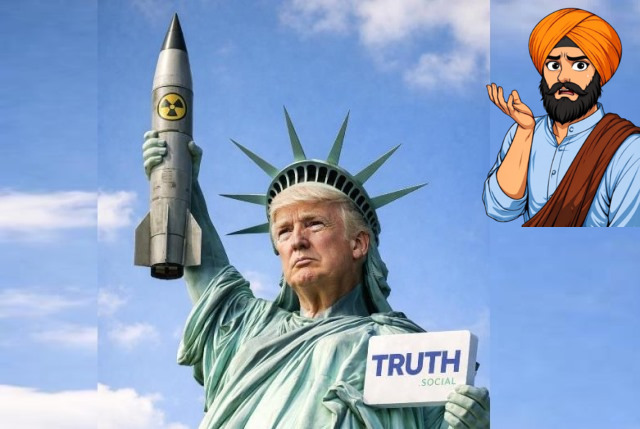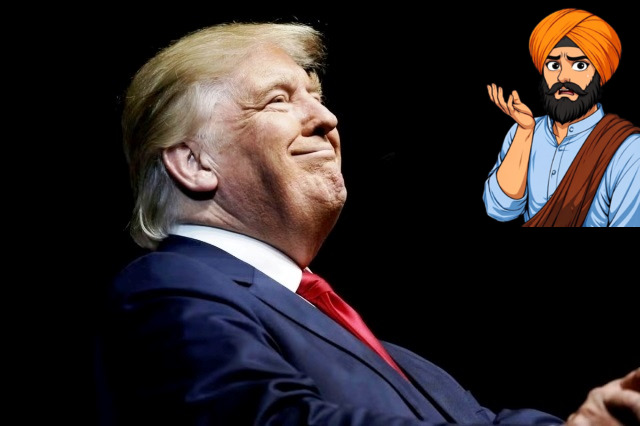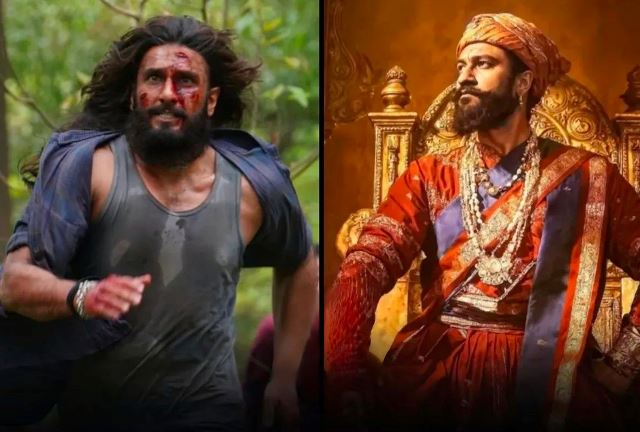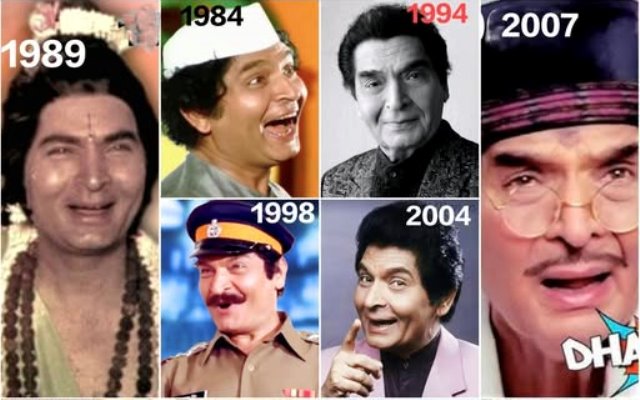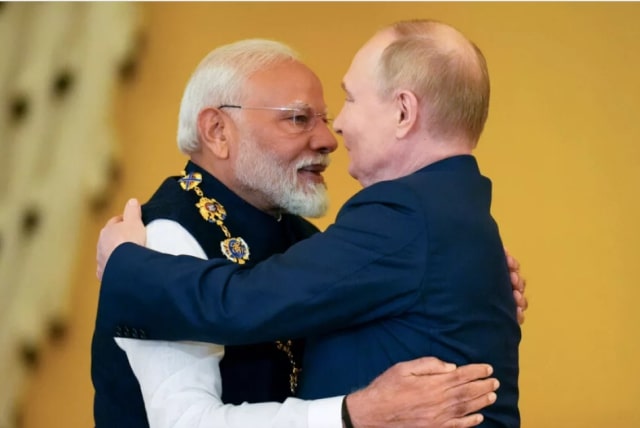
India’s Russian Ties are More Complex than Putin’s Bear Hug of Modi
Last week a video clip showing India’s Prime Minister Narendra Modi hugging Russia’s President Vladimir Putin in Moscow went viral on social media. Commentators described it as Putin’s “bear hug” of Modi and said that it underscored India’s deep and long-standing partnership with Russia, which was forged in the Cold War years when Russia was still the Soviet Union, and has endured through the decades after the fall of the communist regime in 1991.
Modi’s visit to Russia predictably raised concerns in the West, especially as it coincided with the 75th annual meeting of the North Atlantic Treaty Organisation (NATO) in Washington, a crucial gathering this time as Russia’s war in Ukraine rages on for more than two years with no sign of an end. NATO, which is a strategic intergovernmental military alliance of 30 European and two North American countries, was concerned that Russia was supported by China and this increased the challenges that the West has been facing because of the latter’s rise and importance in geopolitics.
Modi arrived in Russia and was welcomed by Putin on the same day that Russian forces allegedly launched a massive missile attack in Kyiv, one of the most deadly since Russia attacked Ukraine in February 2022. The missiles struck civilian targets, including a childrens’ hospital. The viral video of Modi and Putin’s hugs was, therefore, not a good look. Yet, while India has not condemned the war it has never condoned it.
India’s Complex Foreign Policy Strategy
This time too Prime Minister Modi reiterated in Moscow and later in Vienna when he made a state visit to Austria that war was not a solution and that India believed in peace. But India has not categorically condemned Russia’s attack. There are reasons for that.
As a China-Russia bloc has emerged to challenge the West (US and its allies, including the European Union), India has carefully calibrated its foreign policy. It has not jumped on the West’s bandwagon; neither has it put in its lot with the Eastern bloc represented by China and Russia. This is not a new strategy. India’s finely tuned multilateral foreign policy has been a long standing one.
True, India buys oil and defence equipment from Russia. Its oil imports from Russia have increased significantly after the attack on Ukraine following which the West imposed sanctions on Russia. However, things are not that simple. Russia has moved closer to China at a time when India’s relations with China have strained. Russia has also got closer to Pakistan, an arch rival of India. Pakistan is now part of the Shanghai Cooperation Organisation (SCO), which is a Eurasian political, economic, international security and defence organistion. SCO is often seen as NATO’s eastern rival, led by China and Russia, which challenges the West-dominated world order although unlike NATO it is not only a military alliance. Putin has recently declared that Pakistan is one of its primary partners in South Asia.
Statements of that sort queer the pitch for India’s relations with Russia. As a middle power, unaligned with the West or the East, India straddles the divide between the blocs by having a finger in every pie. It is a member of BRICS, an intergovernmental organisation comprising Brazil, Russia, India, China, South Africa, Iran, Egypt, Ethiopia, and the United Arab Emirates; it is a member of the SCO; and it is also a member of the Indo-Pacific Quad, a strategic security dialogue between Australia, India, Japan and the US, which is seen as a strategic grouping to reduce China’s dominance in the region.
ALSO READ: Why Biden-Trump Debate Should Fill World With Horror
Inherent in these alignments with different groupings could be contradictions. For example, the Quad is aimed at curbing China, while in BRICS and SCO, China plays a lead role. Yet, India is part of all three.
Moreover, under Modi, since 2014, India has been growing closer to the West.
The rise of China and its challenge to the Western bloc has led to unprecedented ties between the US and India, which include security cooperation as part of the US’ Indo-Pacific strategy, essentially designed to counter China. Obviously, this is not something that Russia would support.
There was a time when India’s dependence on Russia for defence equipment and technology was high. In fact, Russia is still the biggest arms exporter to India but that is changing. India is now increasing its arms purchases from the US and France. In fact, after Russia, France is the second largest supplier of weapons to India, and the US is now the third largest. Indeed, with the ongoing war in Ukraine, Russian defence supplies available for India to buy are declining.
India’s multilateral foreign policy strategy can be a tricky tightrope to navigate but it has its advantages. Western observers can criticise India for not condemning Russia’s attack on Ukraine but the fact is that while it is true that India has not made an official statement that condemns the war, it has repeatedly officially stated that it does not support it. Prime Minister Modi has reiterated that in his meetings with Putin as well as elsewhere.
In fact, India’s international policy has been to optimise and ensure its own interests while dealing with others, be it the Western or Eastern bloc. It buys relatively cheap Russian oil, technologically superior western defence equipment and arms, it allies with the US to counter threats from China, and also indicates its disapproval of the war in Ukraine. It is in what you might call an enviable sweet spot.
For more details visit us: https://lokmarg.com/
